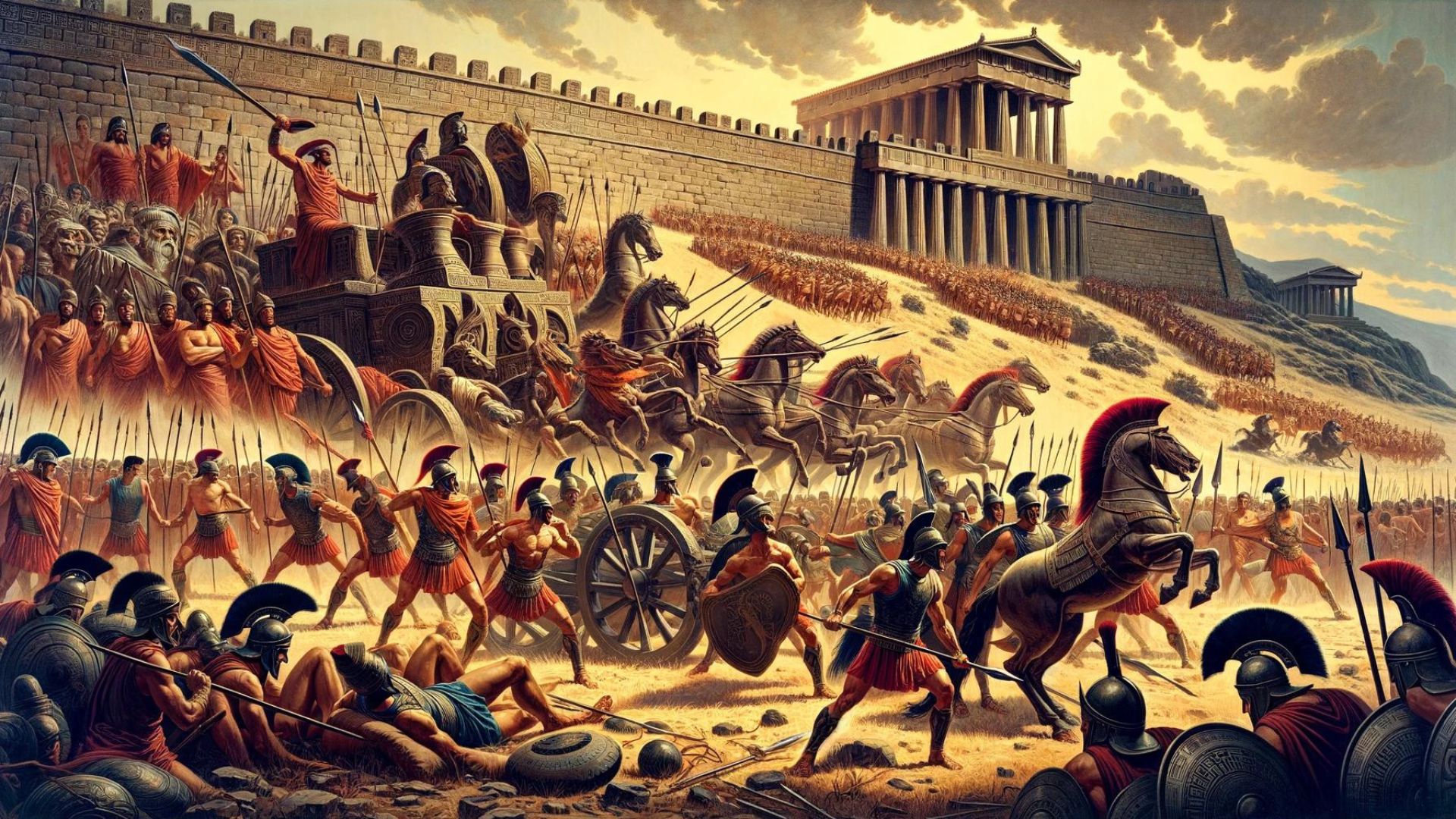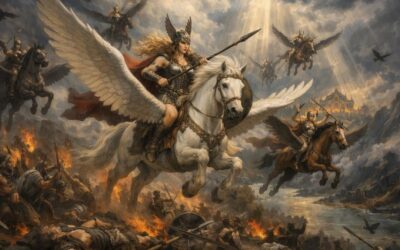Gods and Heroes: The Iliad
Close your eyes and imagine a time when gods walked among men, their whims twisting the threads of mortal lives. Picture warriors clad in bronze, their fates hanging on the edge of a sword. Now, open your eyes to the Iliad, the epic poem by Homer that transports you to the heart of the bloody Trojan War.
The story begins with rage. Achilles, the greatest warrior of the Greeks, is insulted and withdraws from battle after a feud with King Agamemnon. His wrath unleashes a chain of events that will lead to death, glory, and the fall of heroes. While the war rages around them, Achilles wrestles with pride, duty, and the knowledge that his destiny is to die young on the battlefield.
On the opposing side is Hector, prince of Troy. Hector is a hero of a different kind: devoted to his family, bound by duty to his city, yet facing inevitable defeat. Fate has pitted him against Achilles, a warrior he knows he cannot overcome.
But this isn’t just a tale of battles. The gods of Olympus meddle in the war, their own passions and rivalries fanning the flames. Zeus, king of the gods, toys with destinies, while Athena and Hera manipulate events in favor of the Greeks, as vengeful Aphrodite shields her favored Trojans.
Why the Iliad Endures
The Iliad has captivated hearts and minds for centuries. Why? Because its themes of love, loss, hubris, and the struggle against fate touch something timeless within us all:
- The Human Condition: Homer doesn’t glorify war; he shows its brutality, the grief that clings to even the greatest victories.
- Flawed Heroes: Achilles’ rage and Hector’s poignant farewell to his wife remind us that even heroes have weaknesses. They’re complex, relatable figures.
- The Power of Choice: Despite the gods’ meddling, it’s the choices of our heroes – brave, foolish, or selfless – that ultimately shape the tale.
- Legacy: What do we want to be remembered for? Achilles’ thirst for undying glory contrasts with Hector’s quiet dedication. Their fates make us reflect on our own lives.
Your Odyssey Starts Here
The Iliad is more than just a thrilling story. It’s a window into an ancient world that shaped our own, and a mirror reflecting back our own struggles:
- Facing your rage: Have you ever let anger get the better of you, like Achilles? How can you channel that energy constructively instead?
- Duty vs. Heart: How do you balance obligations (as Hector does) with desires for a different life?
- Is there fate? While we don’t believe in the meddling gods of Olympus, do you sometimes feel like forces beyond your control are at play?
The Iliad invites you on a thrilling adventure. You’ll clash with heroes, witness both valor and cruelty, and perhaps emerge a little wiser about the battles we all fight within ourselves.
Why Should You Care?
- The roots of Western storytelling: The Iliad is a cornerstone of Western literature. Its characters, plot devices, and themes continue to influence books, movies, and even how we think about conflict today.
- Understanding the human heart: The Iliad explores universal emotions and struggles: wrath, loyalty, love, the desire for recognition. These haven’t changed, even if our weapons have.
- History comes alive: While not strictly historically factual, the Iliad offers a glimpse into the society, values, and beliefs of the ancient Greeks, a civilization that profoundly shaped our own.
Key Takeaways
- War’s brutal cost: The Iliad doesn’t glorify war, but reveals its pain and the devastation it leaves on both victors and vanquished.
- Heroes are complex: Achilles and Hector are both heroic, yet flawed, reminding us that even legends have weaknesses.
- Gods are meddlesome: The Greek gods aren’t moral forces, but beings with their own pride, rivalries, and desires – often making the mortals’ lives more difficult.
- Fate vs. choice: While the characters grapple with fate, the Iliad ultimately emphasizes the impact of the choices they make.
- It’s about the journey, not just victory: Achilles’ desire for eternal glory, Hector’s quiet acceptance of his duty – both offer us different perspectives on what a meaningful life might be.
Keywords
- The Iliad: Homer’s epic poem about the Trojan War, focusing on the wrath of Achilles.
- Trojan War: Mythological ten-year conflict between the Greeks and Trojans, sparked by the abduction of Helen of Troy.
- Achilles: The most skilled Greek warrior, known for his prowess and his near-invincibility (except for his famous heel!).
- Hector: Noble prince of Troy, destined to fall in battle against Achilles and witness the defeat of his city.
- Homer: Legendary poet credited with authoring both the Iliad and the Odyssey.
- Greek mythology: System of myths and legends of the ancient Greeks, featuring gods, heroes, and explanations of the natural world.
- Fate: Predetermined course of events, a powerful force in Greek mythology, often tragic.
- Hubris: Excessive pride or arrogance, frequently a fatal flaw in Greek heroes leading to their downfall.
- Epic poem: Long, narrative poem detailing heroic deeds and significant events, often with mythical elements. 10.Legacy: What is left behind after someone’s life – their impact, how they’re remembered.
Frequently Asked Questions
- Did the Trojan War actually happen? Archaeologists have found evidence of a city of Troy that was destroyed around the time the Iliad might be set, but the myth and reality are intertwined.
- Who’s the ‘good guy’? The Iliad is remarkably nuanced; there’s heroism and brutality on both the Greek and Trojan sides.
- Were the Greek gods real? The Greeks genuinely believed in these gods. While we might not, their actions in the poem symbolize forces of nature, but also aspects of human psychology.
Myth Buster
- Myth: Achilles was entirely invincible. Reality: He was invulnerable almost everywhere. The legend of his vulnerable heel speaks to the idea that even the mightiest have a weakness.
Let’s Talk
- Who did you relate to more, Achilles or Hector? Why?
- Do you think the gods’ actions in the story are justified? How do they compare to the idea of divine figures in modern religions?
- Can a story written in such a different time still be relevant to our lives today? Explain.
Let’s keep the conversation flowing! Share your opinions in the comments below.











0 Comments